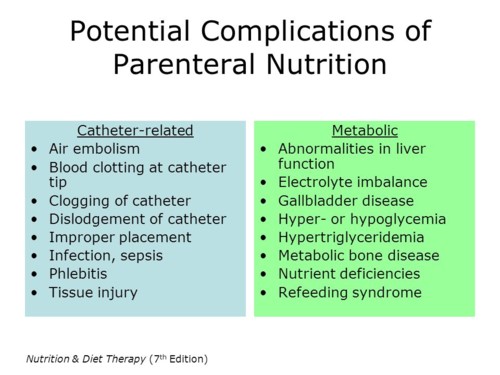The nurse is caring for an older client with that is exhibiting signs of confusion. Which intervention should the nurse implement?
Offer water to the client hourly.
Reduce dairy product intake.
Increase daily sodium intake.
Review the intake and output record.
The Correct Answer is D
Choice A
Offering water to the client hourly is not appropriate. While staying hydrated is important for overall health, offering water hourly might not be necessary unless there is a specific indication of dehydration. However, monitoring the client's fluid intake and output is a good approach.
Choice B
Reducing dairy product intake is not appropriate. Dairy product intake is not typically associated with sudden onset confusion. Reducing dairy product intake would not be the primary intervention for addressing confusion.
Choice C
Increasing daily sodium intake is not appropriate. Increasing sodium intake is unlikely to be the appropriate intervention for confusion unless there is a specific medical reason for it. Moreover, excessive sodium intake can have negative health consequences.
Choice D
Reviewing the intake and output record is appropriate. Confusion in an older client can be caused by various factors, including medical conditions, medication side effects, dehydration, and electrolyte imbalances. Reviewing the intake and output record (option D) is a reasonable intervention to gather more information about the client's fluid balance and hydration status. This can help the nurse assess whether the confusion might be related to dehydration or electrolyte imbalances.
Nursing Test Bank
Naxlex Comprehensive Predictor Exams
Related Questions
Correct Answer is A
Explanation
Choice A
Counting carbohydrates will ensure glucose levels stay within a normal range is accurate. When providing dietary education to a client with Type 2 diabetes mellitus, it's important to emphasize the role of carbohydrate counting in managing blood glucose levels. Carbohydrate intake significantly impacts blood sugar levels, and counting carbohydrates can help the client make informed decisions about their meals and medications to maintain glucose levels within a normal range.
Choice B
Many carbohydrates are found in starches and fruits is not accurate. Carbohydrates are present in a variety of foods, including starches (such as bread, rice, and pasta) but not fruits. Educating the client about sources of carbohydrates can help them make choices that support blood sugar management.
Choice C
It is best to count carbohydrates when it feels like blood glucose is low is not accurate. Counting carbohydrates is an ongoing practice that helps individuals with diabetes maintain consistent blood sugar levels throughout the day, not just when blood glucose feels low.
Choice D
Examples of complex carbohydrates are white rice and cereals is inaccurate. White rice and many cereals are actually exampling of simple carbohydrates. Complex carbohydrates include foods like whole grains, legumes, and vegetables. It's important to provide accurate information about carbohydrate types.
Correct Answer is D
Explanation
Correct answer: D
Choice A
Urinary ketones are not most important. Monitoring urinary ketones can provide information about the utilization of glucose and fat as energy sources. However, it is not the primary lab value to monitor in TPN administration.
Choice B
Serum protein is not most important. Monitoring serum protein levels is important to assess nutritional status, but it might not be as immediate a concern as serum osmolarity.
Choice C
Serum osmolarity reflects the concentration of particles (such as electrolytes, glucose, and other solutes) in the blood. Monitoring serum osmolarity is importantto prevent complications related to fluid and electrolyte imbalances that can arise from the administration of TPN.Blood glucose levels (option D) are more critical because TPN can significantly impact glucose metabolism
Choice D
When caring for a client receiving total parenteral nutrition (TPN), the nurse’spriorityis tomonitor blood glucose levels. TPN can affect blood glucose, and observing for signs of hyperglycemia or hypoglycemia is crucial.Additionally, administering insulin as directed based on blood glucose levels is essential.

Whether you are a student looking to ace your exams or a practicing nurse seeking to enhance your expertise , our nursing education contents will empower you with the confidence and competence to make a difference in the lives of patients and become a respected leader in the healthcare field.
Visit Naxlex, invest in your future and unlock endless possibilities with our unparalleled nursing education contents today
Report Wrong Answer on the Current Question
Do you disagree with the answer? If yes, what is your expected answer? Explain.
Kindly be descriptive with the issue you are facing.
